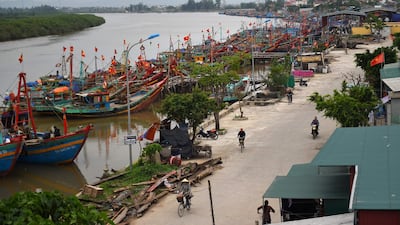Emerging markets saw portfolio inflows decline in October month-on-month as uncertainty stemming from the US-China trade dispute weighs on investors' confidence, the Institute of International Finance said.
Portfolio inflows slowed to $22.5bn (Dh82.6bn) in October, compared to $37.7bn in September, the IIF said.
"We believe the outlook for equity flows to non-China EM remains difficult given the large amount of hot money that has already gone to EM in recent years," the IIF said. "While we are 'glass-half-full' on the global economy, the persistent weakness of EM currencies versus the dollar is worrying."
The ongoing trade dispute is hurting the global economy's growth with international bodies such as the International Monetary Fund and the World Bank warning of a deteriorating outlook.
The global economy is in a “synchronised slowdown” and projected to grow 3 per cent this year, its slowest expansion since the 2008 global financial crisis, as a result of protectionist policies and increased uncertainty related to trade, the IMF said in October.
The Washington-based lender's estimate is a 0.3 percentage point downgrade from its April forecast and marks the fifth revision of the organisation’s outlook on the global economy, which grew 3.6 per cent last year.
Underscoring the dire outlook, the World Bank said in October prospects for global economic growth are worsening amid trade tensions and uncertainty related to Britain's exit from the European Union.
Emerging markets' portfolio inflows of $22.5bn in October was mostly comprised of debt inflows, totalling around $21.3bn, the IIF said.
"There are many different forces at work currently, including geopolitical uncertainty, weak commodity prices and idiosyncratic difficulties," it said. "But perhaps the single common denominator is non-resident capital flows to non-China emerging markets."


